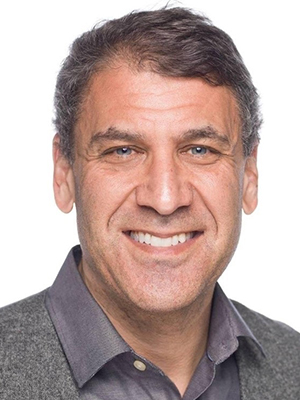Howard Tiersky is a leading authority on digital transformation and the author of the best-selling book “Winning Digital Customers”.
There are many legacy companies today sleep walking toward their grave. They’re about to be engulfed by a fast approaching wave of momentous change which they are totally unprepared to face. It’s no longer a question of whether market disruption will happen to their business – it’s only a question of when. There will be no safe place to hide. No sector will be spared. Many companies will be simply swept away.
Some refer to it as the Fourth Industrial Revolution. Others call it the Age of Upheaval. Whatever you call it, the change will be so radical, so disruptive, so extensive that it will demand completely revolutionary thinking in order to avoid extinction. And revolution is just not in the vocabulary of most businesses. Companies much prefer the calm and predictability of business as usual.
For years now digitization has been on the corporate agenda as an operational necessity. The principal motivation has been modernization of the company’s operating model – how work actually gets done. Seeing no special urgency, companies have tended to move at a leisurely pace, satisfied with incremental gains in productivity and efficiency. Even then many of these modest transformation initiatives fail. In fact, it’s estimated that just 30% of digital change initiatives ever succeed. Poor governance, lack of executive fortitude, pushback from internal naysayers, inadequate funding, thinly spread resources, competing priorities – all of these factors and more can sap the will of the project champions.
Now consider the even tougher odds of achieving profound transformation that calls for divergent thinking to succeed. This is the exact type of transformative change that will be essential in the years ahead as big data, AI, IoT, augmented reality, the metaverse and robotics converge to rock the world. Companies will need to prepare for various possible scenarios that are entirely speculative at this point. They will need to adopt a start-up mindset. And they will need to have the courage to give up what they know has worked in the past for what they are guessing will work in the future.
The penalty for failure is so fatal that John Chambers, the former CEO of Cisco, is famously quoted as predicting that 40% of businesses will not exist in a meaningful way in ten years. And he said that eight years ago. Maybe he was being a bit melodramatic, but the truth is that most companies are simply not built to reinvent themselves. They are certainly not prepared to leap into the unknown. And they absolutely do not want to risk jeopardizing their current cash flows and upset their shareholders.
So how can businesses gird themselves for the future instead of continuing to move in slow motion? How can they be more innovative? Agile? Bolder? How can they be better at change management? In short, how can they make themselves invincible?
Howard Tiersky has many of the answers which can be found in his best-selling book Winning Digital Customers. His company, FROM, has led many successful transformation projects for a wide range of enterprise clients and in the book he shares his methodology for success. Howard has himself spent most of his career spearheading digital change from the earliest days of the commercial Internet.
I started by asking Howard how he transformed himself from an aspiring theatrical director in his youth to a popular champion of digital transformation.
Howard Tiersky: Yeah, I’m even more a theater director, actually. But my original kind of career trajectory when I started my education those many decades ago, that’s right, was in theater and film and video in those areas. And I studied that, and I did some of that work professionally very early in my career, in my 20s. And then started to also work in this area that at the time was called multimedia, applying some of those same principles to things like CD-ROMs, you know, if you remember back in the day.
Stephen Shaw (SS): Yeah, of course, I do.
